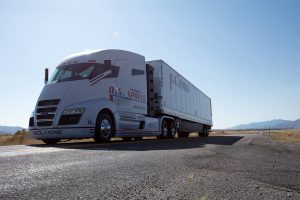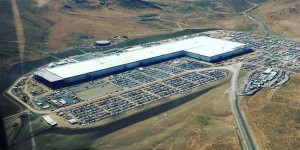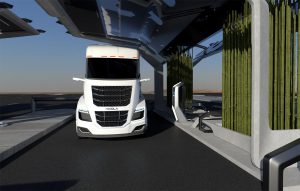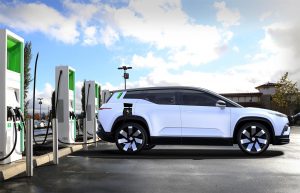
The new batteries could deliver up to 800 miles per charge in the Nikola One semi, the company claims.
Range and cost are two of the biggest hurdles faced by proponents of battery-electric vehicles, but a Phoenix-based truck company start-up claims it has developed “the Holy Grail of batteries,” a new technology that can pack about twice as much energy into a given mass while also halving the price compared to today’s lithium-ion technology.
The purported breakthrough comes as something of a surprise considering the source, Nikola Motor Co. first gaining attention with its plan to roll out a series of trucks replacing conventional diesel engines with hydrogen fuel cells.
The new batteries would offer similar range, as much as 800 miles on a charge, only slightly less than what a modern truck can manage on a tank of diesel. But the announcement has sparked a fair bit of skepticism.
“This is the biggest advancement we have seen in the battery world,” said Trevor Milton, founder and chief executive of Nikola. “We are not talking about small improvements; we are talking about doubling your cell phone battery capacity. We are talking about doubling the range of BEVs and hydrogen-electric vehicles around the world.”
Nikola’s CEO indicated the new batteries were acquired through a start-up it is in the process of acquiring and it will move to commercializing the technology once the deal is completed. It plans to demonstrate the batteries next autumn during an annual event, dubbed Nikola World.
Officials offered only vague details about the new technology but indicated it is not the same as the solid-state batteries many others, including Toyota, have been chasing.
It appears the key to the battery is removing the binder material and electric current collectors used in today’s lithium-ion cells. That would reduce not only size and weight, Milton claimed, but also make the new batteries “more conductive,” translating into faster charging times.
(VW running into major software problems with new ID.3 battery-electric vehicle.)
If used in a Class 8 semi, Nikola claims:
· Its vehicles could get travel 800 miles between charges and then quickly recharge;
· The battery pack could be downsized to add an additional 5,000 pounds of cargo;
· The batteries would weigh 40% less than a lithium-ion cell yet hold as much energy
· Pricing would come down 50%. With the best of today’s batteries believed to be in the $100 to $120 range, that would mean as little as $50 to $60 per kilowatt-hour.

If the new technology proves valid it could cause a major shake-up in the battery industry. Tesla might have to completely redesign its Gigafactory, for one thing.
Nikola also claims that preliminary testing shows the batteries can withstand 2,000 charge and discharge cycles, or twice the current industry standard for motor vehicles. If that were to prove valid in real would applications it would suggest a truck could clock over 1.5 million miles before needing to replace the pack.
(Lucid starts taking orders for new Lucid Air battery-car.)
If Nikola can get the batteries into production it could gain a leg up on one of its biggest potential rivals, Tesla, which is developing its own EV truck using batteries from its Gigafactory. They are expected to deliver about 500 miles of range.
The Nikola technology would have application to passenger vehicles, as well, claimed Milton, suggesting that the size of a current battery could be halved – or range could be doubled. If that proved accurate, a product like the Tesla Model S with its longest-range battery pack could get somewhere north of 700 miles per charge.
“We have the Holy Grail of batteries,” Nikola’s CEO claimed. “You are talking about making electric vehicles at an affordable price point.”
(Fisker Ocean set to make its formal debut at next month’s Consumer Electronics Show.)
Not everyone buys in on Nikola’s claim and, at best, it is likely to take several years to commercialize the new battery, according to tech consultancy ABI Research.
But there is little doubt such a breakthrough would be welcomed. The Boston Consulting Group has estimated that batteries need to come down to $70 or less per kWh for the price of an all-electric vehicle to reach parity with today’s gas and diesel models.
Much of the industry’s focus has been on solid-state batteries that essentially replace the chemical slurry in lithium-ion batteries with a ceramic material. But other research has focused on improving today’s batteries in some of the ways Nikola says its new technology has achieved.
Such breakthroughs, if put into production, would pose challenges to existing battery manufacturing operations, such as the $5 billion Tesla Gigafactory in Reno, Nevada, likely requiring massive and costly tear-ups.


